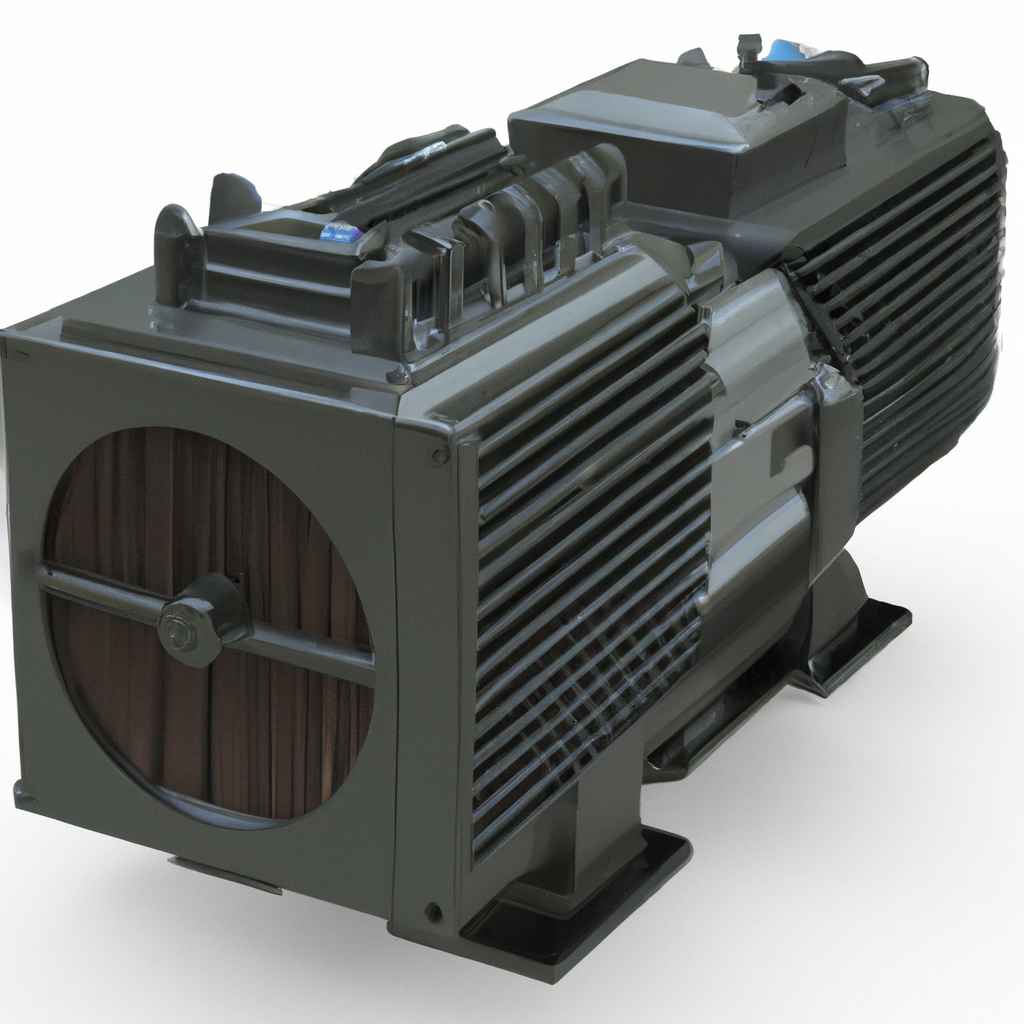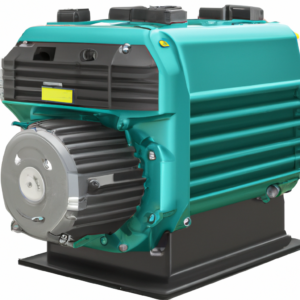Introduction
Hey there! Are you in the market for a generator? Choosing the right generator is crucial to ensure you have a reliable backup power source for your home or business. In this comprehensive guide, we’ll walk you through everything you need to know to make an informed decision. From understanding your power requirements to exploring different types of generators, fuel efficiency, noise levels, budget considerations, safety measures, and more, we’ve got you covered. So let’s dive in!
Understanding Power Requirements
Determining your power needs
The first step in choosing the right generator is to determine your power requirements. Start by making a list of the essential appliances and devices you want to power during an outage. Consider items like refrigerators, heating and cooling systems, lights, computers, and medical equipment.
Calculating wattage requirements for essential appliances
Once you have your list, calculate the wattage requirements for each appliance. You can usually find this information on the manufacturer’s label or in the user manual. Add up the running wattage of all the appliances to determine the minimum power output you’ll need from your generator.
Factoring in starting and running watts
It’s important to note that some appliances, especially those with motors, require additional power during startup. This is known as starting watts. Make sure to factor in the starting watts when calculating your total power needs. Generators typically provide both running watts and starting watts in their specifications.
Considering future power needs and expansion
Think about your future power needs and any potential expansion plans. If you anticipate adding more appliances or equipment, it’s wise to choose a generator with some extra capacity. It’s better to have a generator that can handle more than you currently need, rather than one that falls short.
Different Types of Generators
Portable Generators
Features and benefits
Portable generators offer flexibility and mobility. They are typically smaller and can be easily transported to different locations. They are ideal for recreational activities like camping or for providing temporary power during emergencies.
Ideal usage scenarios
Portable generators are perfect for outdoor activities, construction sites, and small backup power needs. They can power a few essential appliances or devices.
Pros and cons
Portable generators are relatively affordable and easy to use. They come in various sizes and power outputs to suit different needs. However, they usually have a limited power capacity and may not be suitable for running large appliances or whole-house backup.
Standby Generators
Features and benefits
Standby generators are permanently installed and automatically turn on during a power outage. They are designed to provide seamless backup power, often running on natural gas or propane. They can power your entire home or business for extended periods.
Ideal usage scenarios
Standby generators are best for homeowners or businesses that require uninterrupted power supply during outages. They are capable of handling high power demands and can support multiple appliances simultaneously.
Pros and cons
Standby generators offer convenience and peace of mind, as they start automatically when the power goes out. They are powerful and reliable, but they come at a higher cost and require professional installation.
Inverter Generators
Features and benefits
Inverter generators are known for their fuel efficiency and clean power output. They utilize advanced technology to produce stable and reliable electricity suitable for sensitive electronics.
Ideal usage scenarios
Inverter generators are popular for camping, outdoor events, and powering electronic devices that require stable power, such as laptops, smartphones, and televisions.
Pros and cons
Inverter generators are compact, lightweight, and produce less noise compared to traditional generators. They are also fuel-efficient, running longer on a single tank. However, they typically have lower power output compared to larger generators and may not be suitable for heavy-duty applications.
Fuel Types and Efficiency
Gasoline Generators
Pros and cons
Gasoline generators are widely available and offer a lower upfront cost. However, gasoline may be less stable for long-term storage, and fuel availability during emergencies can be a concern.
Fuel availability and storage considerations
Gasoline can be obtained from local gas stations or fuel cans. It’s important to store gasoline safely in approved containers and follow proper storage guidelines to maintain its quality.
Diesel Generators
Pros and cons
Diesel generators are known for their fuel efficiency and durability. They are more suitable for heavy-duty applications and can run for extended periods. However, they tend to have a higher upfront cost compared to gasoline generators.
Fuel availability and storage considerations
Diesel fuel is widely available, especially in commercial settings. Proper storage is crucial to maintain its quality and prevent contamination.
Propane Generators
Pros and cons
Propane generators offer cleaner emissions and longer shelf life for fuel storage. Propane is also readily available, making it convenient for backup power needs. However, propane generators may have a higher initial cost, and the fuel itself can be more expensive than gasoline or diesel.
Fuel availability and storage considerations
Propane can be obtained from local suppliers or through refillable tanks. Storing propane requires proper ventilation and adherence to safety guidelines.
Comparing Fuel Efficiency of Different Generator Types
Factors affecting fuel efficiency
Several factors can influence the fuel efficiency of a generator, including the generator type, load capacity, engine efficiency, and maintenance practices.
Tips for maximizing fuel efficiency
To maximize fuel efficiency, consider using a generator with an appropriate power capacity for your needs, perform regular maintenance, keep the generator well-tuned, and avoid overloading the generator.
Noise Levels and Environment
Understanding generator noise levels
Generator noise levels are measured in decibels (dB). It’s important to consider the noise output of a generator, especially if you live in a residential area or plan to use it in noise-sensitive environments.
Importance of noise reduction
Noise reduction is essential for maintaining a peaceful environment and complying with local noise regulations. It also contributes to a better overall user experience.
Noise reduction techniques and products
There are several ways to reduce generator noise, such as using noise-attenuating enclosures, installing sound barriers, and placing the generator on a vibration-isolating pad. Additionally,
mufflers and noise-canceling technologies can help minimize noise output.
Compliance with noise regulations
Check local noise regulations to ensure your generator meets the acceptable noise levels within your area. Some neighborhoods or municipalities may have specific guidelines regarding noise emissions.
Budget and Long-Term Costs
Setting a budget for your generator
Before purchasing a generator, it’s important to determine your budget. Consider the upfront cost of the generator, installation expenses, ongoing fuel costs, and potential maintenance and repair costs.
Considering maintenance and repair costs
Regular maintenance is crucial to keep your generator in optimal condition. Budget for routine maintenance tasks and factor in potential repair costs over the lifespan of the generator.
Evaluating the total cost of ownership
When evaluating the total cost of ownership, consider the initial investment, fuel consumption, maintenance expenses, and potential repair costs. A higher-quality generator may have a higher upfront cost but could result in lower long-term expenses.
Exploring financing and warranty options
If the upfront cost is a concern, consider financing options provided by manufacturers or retailers. Additionally, review the warranty terms and coverage to ensure proper protection for your investment.
Generator Safety Measures
Understanding generator safety hazards
Generators pose potential safety hazards, including electrical shocks, carbon monoxide poisoning, and fuel-related accidents. Understanding these risks is crucial to ensure safe operation.
Proper generator placement and ventilation
Place the generator outdoors in a well-ventilated area away from doors, windows, and vents. Follow the manufacturer’s guidelines for safe placement to prevent carbon monoxide buildup.
Electrical safety precautions
Take appropriate electrical safety measures when connecting appliances or devices to the generator. Use heavy-duty extension cords and avoid overloading the generator’s capacity.
Safe refueling practices
When refueling the generator, turn it off and let it cool down before adding fuel. Use approved fuel containers and avoid spillage or contact with hot surfaces.
Conclusion
Recap of key points discussed in the article
In this guide, we covered everything you need to know about choosing the right generator. We explored power requirements, different types of generators, fuel types and efficiency, noise levels, budget considerations, and generator safety measures.
Encouragement to make an informed decision
Now armed with this knowledge, you can confidently make an informed decision that meets your specific power needs.
Final thoughts on the importance of choosing the right generator for specific needs
Remember, the right generator is an investment in your comfort, convenience, and peace of mind. By considering factors such as power requirements, fuel efficiency, noise levels, budget, and safety, you can find the perfect generator to keep the lights on when you need it most.
FAQ
Q: How do I determine the starting and running watts for my appliances?
A: Starting and running watts can usually be found on the appliance’s label or in the user manual. If not specified, you can use an online wattage calculator or consult a qualified electrician to assist you.
Q: Can I connect sensitive electronics directly to a conventional generator?
A: It’s generally recommended
to use an inverter generator for sensitive electronics to ensure clean and stable power output. However, if using a conventional generator, you can connect sensitive electronics via a high-quality surge protector or a voltage regulator.
Q: Are standby generators suitable for small residential properties?
A: Standby generators are typically designed for larger residential properties or commercial use. However, there are smaller standby generators available that can cater to the power needs of smaller homes. Consult with a professional to determine the right size for your specific property.
Q: How often should I perform maintenance on my generator?
A: Regular maintenance is essential for optimal generator performance. Refer to the manufacturer’s guidelines for specific maintenance intervals and tasks. In general, routine maintenance should include oil and filter changes, spark plug inspections, and overall system checks.
Q: Can I run a generator indoors during a power outage?
A: No, running a generator indoors poses a serious risk of carbon monoxide poisoning. Generators should always be used outdoors in a well-ventilated area, away from living spaces, doors, windows, and vents.
Remember, when writing your article, maintain a balance between providing valuable information and using a casual and approachable tone. Incorporate the keywords naturally within the headings, subheadings, and body text, ensuring they flow seamlessly with the overall content.

